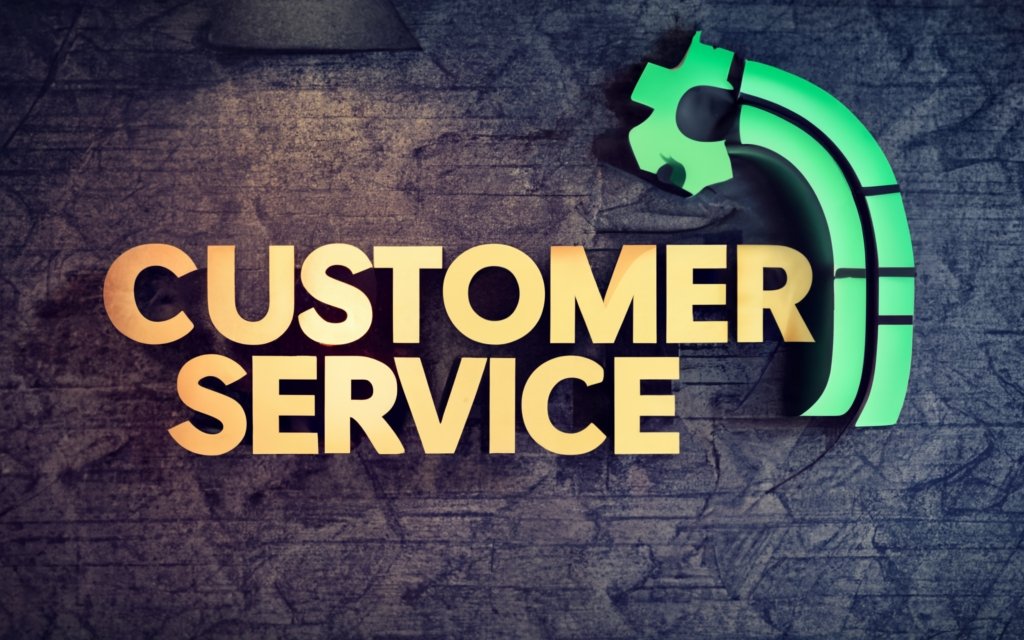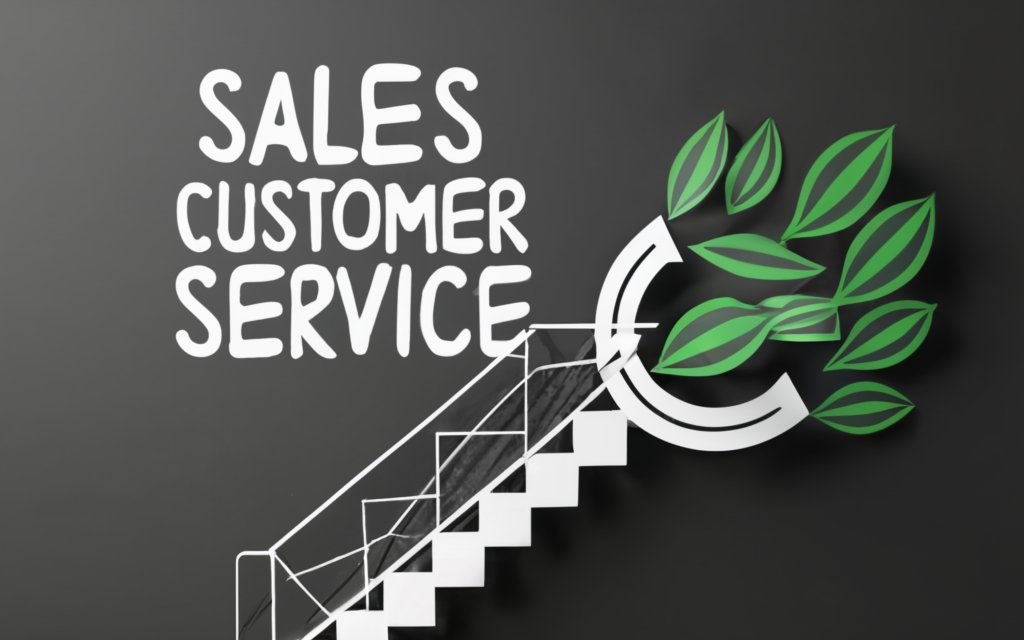Becoming a top-performing sales or customer service consultant takes more than just skills and experience. You need the right strategy and mindset to build a thriving, rewarding consulting career helping companies excel. This comprehensive guide reveals insider tips from experts to set yourself up for consulting success. Whether starting out or looking to level up, learn how to establish your expertise, gain high-value clients, deliver measurable impact, and achieve rapid growth. With the right combination of smarts, hustle, and savoir-faire, you can build a stimulating career as a trusted sales or service advisor. So read on to unlock the keys to consulting greatness!
Understanding Sales and Customer Service Consulting
Consulting is a multifaceted career path that offers variety, flexibility, and tremendous growth opportunities. Sales and customer service consultants bring specialized expertise to organizations to optimize different aspects of the business. But what exactly does a consultant do?
What is a Consultant?
A consultant is an experienced professional who provides expert advice, strategic guidance, and practical implementation support to companies and clients. They are typically hired on a contract basis to address a specific business need or challenge.
Consultants utilize their skills and knowledge to assess the client’s current situation, identify issues or gaps, and make recommendations to improve processes, maximize technology, reduce costs, increase productivity, and boost profits. They may design solutions, create project plans, provide training, or oversee new program implementation.
There are consulting specialties covering nearly every function in business, from HR and marketing to operations and IT. Sales and customer service consultants focus specifically on maximizing an organization’s commercial success.
Responsibilities of Sales and Customer Service Consultants
Sales consultants concentrate on driving revenue growth by improving sales strategies, processes, talent, and tools. Common responsibilities include:
- Analyzing the sales pipeline and performance metrics
- Identifying gaps in current sales methods and coverage models
- Defining ideal customer profiles and go-to-market strategies
- Creating pricing optimization plans to capture value
- Designing sales compensation structures and incentive programs
- Establishing sales technology platforms and workflows
- Hiring plans for sales roles and territories
- Training programs focusing on consultative selling skills
Customer service consultants focus on optimizing support interactions to increase customer satisfaction, loyalty, referrals, and retention. Their duties may consist of:
- Evaluating current service practices for efficiency and quality
- Recommending resources to improve response times and resolution rates
- Creating feedback channels to understand customer needs and pain points
- Designing omnichannel support combining self-service options with human interaction
- Implementing new technologies like chatbots, knowledge bases, and help desk systems
- Establishing service level agreements (SLAs) and key performance indicators (KPIs)
- Developing customer experience training for support agents
- Redesigning onboarding and ongoing support programs for user self-sufficiency
Though their angles differ, both play a crucial role in enabling company growth and profitability.
Key Differences Between Sales and Customer Service Consultants
While sales and service consultants have some overlapping skills, their focus areas require different backgrounds, experience, and mindsets.
Sales consultants tend to have previous sales management expertise along with analytical abilities to interpret data. They develop future-oriented strategies to hit targets. Customer service consultants are more focused on the current state of operations. They observe workflows and interactions to pinpoint improvement areas.
Sales consultants aim to maximize deal value and expand the customer base. Service consultants strive to enhance retention and loyalty among existing users. Sales requires a persuasive, competitive nature to hit quotas. Service relies on patience, empathy, and communication skills to resolve issues.
That said, sales and service work hand-in-hand toward the same goal of pleasing customers. Consultants from both sides need to apply their distinct expertise in a complementary way. For instance, ineffective onboarding from poor service quality could result in high churn that sales must compensate for with aggressive lead generation. When optimized together, the two functions create a seamless customer experience.
Organizations often engage subject matter experts like sales and customer service consultants when they require an objective, outside perspective. Their niche focus and breadth of experience across various industries makes them invaluable change agents for driving breakthrough results.

Key Skills and Qualifications
Succeeding as a sales or customer service consultant requires a diverse yet specialized mix of soft and hard skills. While formal education and credentials matter, the ideal personality traits and inherent abilities set truly exceptional consultants apart.
Let’s explore the most crucial competencies for consulting excellence across both functions.
Core Communication Skills
Impeccable communication is mission-critical, whether collaborating internally or interacting with clients. Consultants must express complex ideas and recommendations clearly, tactfully, and persuasively.
Key skills include:
- Active listening: Giving full attention to the speaker without interrupting. This shows respect while gathering details. Consultants must interpret both what is said and unsaid during meetings and conversations.
- Powerful questioning: Sales consultants ask incisive questions to uncover customer pain points. Service consultants use probing questions to get to the root of support issues. Well-phrased inquiries elicit more information.
- Summarizing: Recapping discussions and next steps ensures mutual understanding. It also reinforces key points and desired actions.
- Rapport building: Establishing trust and comfort allows for open, productive dialog. Thoughtful small talk, sincerity, and enthusiasm help build connections.
- Flexing communication styles: Savvy consultants adapt their vocabulary, pace, tone, and approach based on the audience. Different personalities require tailored messaging.
- Impactful writing: Conveying technical details, recommendations, and proposals clearly in writing is essential. Organization and brevity keep recipients engaged.
- Presentation skills: When pitching ideas to executives or training teams, impactful visuals and confident public speaking skills persuade the room.
Master communicators get their point across while making others feel valued. This balance of logic and empathy paves the way for client buy-in.
Mastery of Product and Industry Knowledge
Consultants must intimately understand their client’s business, market landscape, and value proposition.
For sales consultants, this entails researching factors like:
- Competitive offerings: How the client’s products or services compare on features, pricing, and positioning
- Target customers: The demographics, priorities, and buying processes of ideal prospects
- Sales team structure: How roles, responsibilities, and territory alignments drive performance
- Historical performance: Sales data trends, forecasts, conversion metrics, and win/loss details
For customer service consultants, key knowledge areas consist of:
- Support center operations: Tools, technologies, staffing models, workflows, and general effectiveness
- User personas: The behaviors, challenges, preferences, and pain points of customer segments
- Product suites: An in-depth understanding of all applications, integrations, and usage patterns
- Metrics and KPIs: Support benchmarks like resolution time, customer satisfaction, churn rate, and escalations
Consultants continuously expand their functional knowledge. They research industry best practices and emerging technologies. They also make a point to learn the client’s offerings inside and out.
Keen Analytical Abilities
Sales and service consultants must adeptly collect, interpret, and present data-driven insights.
Key analytical skills include:
- Extraction: Compile relevant performance metrics, process maps, and qualitative feedback. Identify themes and trends.
- Diagnosis: Pinpoint root causes of issues based on correlations, comparisons, and logical deduction.
- Foresight: Make predictions about future outcomes based on statistical analysis and industry trajectories.
- Modeling: Create projections and “what if” scenarios through simulations, forecasts, and risk assessments.
- Data visualization: Use charts, graphs, and illustrations to spotlight key takeaways and guide strategy.
- Synthesis: Combine various fragmentary inputs into unified, actionable solutions. Think creatively.
- ROI modeling: Quantify the expected financial return, productivity gains, and competitive impact of proposed initiatives.
Analytic aptitude allows consultants to accurately size up the current state and chart an insightful roadmap for measurable success.
Strong Interpersonal Abilities
Consultants interact constantly with teammates, stakeholders, clients, and vendors. The ability to cultivate positive professional relationships is crucial.
Essential qualities include:
- Cultural awareness: Appreciate different backgrounds and adjust one’s style accordingly to build bridges.
- Collaboration: Work jointly with clients in a partnership mindset rather than dictating demands.
- Diplomacy: Provide candid feedback and recommendations in a tactful, constructive manner.
- Motivation: Inspire and empower clients to drive change, even when reluctant or skeptical at first.
- Composure: Remain cool, calm, and professional in stressful interactions. Don’t take difficult people or politics personally.
- Influence: Exert subtle persuasive tactics like reciprocity, social proof, authority, and liking to gain buy-in.
- Assertiveness: Stand firm on important matters while respecting dissenting views. Compromise where possible.
At the core, consultants must balance confidence with approachability. This fosters the trust required for clients to share sensitive information and accept guidance.
High Emotional Intelligence
Emotional intelligence enables consultants to grasp unspoken needs and motivations, showing clients they understand them on a human level.
Key aspects encompass:
- Self-awareness: Recognize one’s own strengths, blind spots, triggers, and work preferences. Reflect on experiences.
- Self-regulation: Keep disruptive emotions and impulses under control. Maintain composure and professionalism always.
- Empathy: Demonstrate compassion, care, and concern. See things from the client’s perspective.
- Motivation: Energize yourself and clients with boundless optimism, passion, and purposeful support.
- Social skills: Forge authentic bonds that support vulnerability, trust, and transparency.
High EQ leads to richer client insights that inspire better solutions. Moreover, clients connect more with consultants they like and respect as individuals. This gets the best results.
Superior Problem-Solving Abilities
Consultants tackle intricate multidimensional problems daily. Structured critical thinking skills help unravel the complex.
Essentials include:
- Defining issues: Ask probing questions to pinpoint the true underlying problem, not just symptoms.
- Researching: Gather extensive qualitative and quantitative data, best practices, and case studies to inform solutions.
- Ideating: Brainstorm creative and innovative hypotheses and strategies to solve the problem.
- Evaluating: Weigh the pros, cons, costs, and benefits of each proposed solution. Assess risks.
- Deciding: Determine the optimum solution using logic, intuition, and experience.
- Implementation planning: Break down the rollout into concrete action steps, owners, timelines, and measures.
- Continuous improvement: Monitor results, identify new issues that arise, and quickly course-correct as needed.
Superior problem-solvers fuse wisdom, imagination, and strategic execution to drive major breakthroughs.
Impeccable Time Management
Consultants must maximize productivity and efficiency when managing multiple complex client initiatives and tight deadlines.
Helpful time management practices involve:
- Prioritization: Rank tasks based on urgency and importance. Tackle mission-critical projects first.
- Organization: Use calendars, project boards, file structures, and notes to stay on track.
- Focus: Avoid distractions and tangents. Stick to allotted schedules.
- Delegation: Outsource administrative or specialized tasks rather than getting bogged down personally.
- Energy management: Maintain consistent productivity levels by working during natural energy peak times and taking breaks.
- Continuous improvement: Reflect on productivity patterns. Optimize how you budget hours.
With so many overlapping demands, consultants who manage time skillfully deliver phenomenal results. They ensure no client or activity falls through the cracks.
Self-Motivation and Discipline
Consulting requires tremendous initiative, resilience, and discipline. Support and structure vary widely across projects. Survival depends on self-direction.
Vital traits include:
- Independence: Be able to work autonomously for long stretches without handholding.
- Proactiveness: Identify needs and solve problems before being asked. Go above and beyond.
- Resourcefulness: Independently locate information and figure things out. Find ways around roadblocks.
- Persistence: Persevere through challenges and setbacks. Remain steadfast despite rejection.
- Continuous learning: Pursue constant skills development and performance improvement. Stay on top of industry advancements.
- Accountability: Hold yourself strictly responsible for timelines, quality, and professionalism. Don’t cut corners.
- Work ethic: Be willing to work nights, weekends, and holidays as needed. View jobs as marathons, not sprints.
Consultants with exceptional drive don’t require intensive oversight to excel. Their ambition is self-sustaining.
This collection of soft and hard skills allows sales and customer service consultants to provide tremendous value as trusted advisors and change agents. While the mix may vary by specialty, the above core competencies offer a recipe for consulting greatness.
When engaging a consultant, companies should assess candidates carefully for these attributes beyond just credentials alone. Skills can be taught, but innate qualities predict success.

Education and Experience Requirements
Breaking into consulting does not necessarily require an advanced degree or decades of experience. However, the right educational foundation and formative work history pave the path for success.
Let’s explore the typical background credentials for sales and service consultants.
Educational Background
Most consultants hold at least a bachelor’s degree, preferably with a major relevant to business, communications, or their specialty. Common fields of study include:
- Business administration or management
- Marketing
- Economics
- Statistics
- Communications
- Psychology
- Information technology
A master’s degree such as an MBA, MS, or MA provides additional credibility and practical business training. However, real-world experience matters more once in the field.
Subject matter expertise is mandatory. Sales consultants should pursue education pathways that encompass topics like:
- Sales methodology
- Consultative selling
- Sales operations
- Business development
- Sales technologies
- Negotiations
- Consumer behavior
Customer service consultant credentials center on areas like:
- Customer experience (CX) principles
- Service design
- Contact center operations
- CX metrics and analytics
- Interpersonal communications
- Organizational psychology
- Change management
Technical product competency, industry knowledge, and consulting methodologies can be learnt on the job. A mix of formal business education and hands-on sales or service experience builds a robust foundation.
Relevant Certifications
Professional certifications validate capabilities and differentiate candidates. Some popular options include:
For sales consultants:
- Certified Professional Sales Person (CPSP)
- Miller Heiman Sales Certification
- Huthwaite SPIN® Selling Certification
- ValueSelling Certification
- Salesforce Sales Cloud Certification
For customer service consultants:
- Customer Experience Professional (CXP)
- CX Advisory Professional (CXA)
- Customer Service Expert (CSE)
- Service Culture Certification
- CX Metrics & Analytics Certificate
Certification exams measure mastery of concepts through practical applications on situational scenarios. Renewal requirements ensure expertise stays current through ongoing professional development.
While certifications aren’t mandatory, they certainly enhance credibility and signal competence. Clients often prefer working with certified consultants who can apply proven frameworks.
Relevant Work Experience
Hands-on experience is an absolute must. Sales consultants transition from sales management positions once they gain enough domain expertise. Customer service consultants often shift from senior support, training, or QA roles.
Typical work experience timeframes before moving into consulting include:
- Sales: At least 8-10 years, including team leadership for 3+ years
- Customer service: Around 10-12 years, including expertise building roles
Ideally this experience comes from working with different-sized companies across multiple industries. Exposure to various organizational structures, leadership styles, and business models expands perspective.
Consultants can deliver more value when drawing from diverse firsthand experiences solving similar problems. Specific areas of experience preparing candidates for consulting success include:
Sales:
- Managing complex sales cycles and territories
- Implementing sales technologies and tools
- Designing workforce planning and compensation models
- Developing sales training curriculums
- Performing win/loss analysis
- Running pilot programs and A/B testing
Customer service:
- Leading support teams across channels
- Analyzing operational data to identify improvement areas
- Auditing and reengineering workflows
- Standardizing processes and systems
- Creating customer experience training programs
- Measuring program effectiveness
- Managing call center staffing and budgets
Aspiring consultants should target such stretch assignments that build expertise. They expose future consultants to strategic high-level decision making.
Specialist Focus Areas
Some consultants develop niche expertise within a function to stand out.
Sales consultants may specialize in:
- Sales compensation plan design
- Sales technology optimization
- Complex B2B solution selling
- Sales message and content development
Customer service consultants may focus on:
- Omnichannel experience mapping
- CX impact modeling and measurement
- Customer feedback analysis
- Service design and processes
Narrow specialties allow charging premium rates. But consultants need to maintain versatility to ensure steady project pipelines. Over-specializing too early can restrict marketability.
The most successful consultants never stop learning. They pursue knowledge and credentials in complementary areas to become consummate subject matter experts.
While degrees and designations open doors, real-world excellence is what clients care about most. Budding consultants should craft educational and career paths purposefully to glean well-rounded mastery and become trusted advisors.

Building a Successful Consulting Business
Once you have the skills and experience, it’s time to build your reputation and client roster as an independent consultant or within a firm. Let’s explore tips for getting started.
Choosing Between Independent and Firm Consulting
The first strategic choice is whether to remain fully independent or join an established consultancy.
Benefits of independent consulting include:
- More control over selecting projects
- Keeping 100% of fees (minus expenses)
- Flexibility in work schedule and location
- Ability to diversify clientele for varied experience
- Direct client relationship for deeper partnerships
- Low overhead expenses to operate solo
Advantages of consulting firm roles are:
- Instant brand credibility from firm reputation
- Access to broad internal expertise and methodologies
- Turnkey infrastructure like sales, project management, and research functions
- Cohesive teams with specialized skills
- Mentorship opportunities from firm leaders
- Faster growth trajectory leveraging the firm’s brand
Weigh factors like income needs, professional development, work/life balance, and personality fit.
Novice consultants may gain more hands-on expertise initially at an established firm. Independent consulting generally suits seasoned experts looking for autonomy.
Of course, one can always start out at a firm to gain experience and migrate to independent consulting later on. There’s no one right path.
Establishing Your Personal Brand and Niche
Whether independent or within a firm, consultants must cultivate personal authority and thought leadership to flourish.
Strategies to build an influential brand include:
- Pick a niche: Become known as an expert on a specific industry, service area, or consulting technique. Offer a specialty.
- Create content: Share insights through blogging, speaking, guest articles, and social media. Offer value.
- Publicize achievements: Ensure consulting successes and credentials are prominently highlighted on your website and profiles.
- Network actively: Attend conferences and virtual events to connect with potential clients and partners.
- Establish credibility: Earn influential third-party certifications, ratings, and awards. Get client testimonials.
- Exude thought leadership: Position yourself as a visionary by publishing forward-thinking viewpoints and research.
Choose activities you enjoy and that attract your target clients. Consistent engagement builds organic visibility and trust.
Lead Generation Techniques
Consultants and firms need a steady pipeline of new business to thrive. Some tactics to get clients include:
Existing network: Reach out to your contacts from previous corporate roles and industry connections.
Referrals: Request introductions to new prospects from satisfied clients or partners.
Speaking engagements: Convert listeners into clients by presenting at conferences or corporate events. Offer value.
Published content: Expand digital visibility through blogging, podcasts, and videos to attract inbound leads. Share expertise.
Sales outreach: Contact prospects directly through personalized emails or phone calls when you identify a potential fit. Provide value first.
Social media: Build an engaged following on channels like LinkedIn to connect with prospective clients. Contribute insights.
Marketing campaigns: Run promotions, content downloads, or contests to capture leads through your website and nurture them.
Public relations: Gain visibility and credibility through news articles, interviews, or contributed bylines. Boost authority.
Paid ads: Target prospects actively searching for services through paid search and social media ads. Retarget website visitors.
An integrated strategy combining multiple demand generation levers is ideal for ensuring a predictable new business flow.
Pricing Models and Rates
Independent consultants can set their own pricing, while firms maintain rate cards. Common pricing models include:
- Hourly: Best for well-defined short-term engagements. Rates span $150-$500+ per hour based on experience level.
- Daily or weekly: Provides some discount for ongoing longer-term projects. Daily rates from $1,000-$5,000 per day are typical.
- Flat project fee: Best when the scope of work is very clear. Fees run from $5,000 for limited projects or into the millions for extensive long-term partnerships.
- Value-based: Consultants earn a percentage of quantified financial gains from the engagement. This aligns incentives.
- Retainer: Minimum monthly or annual fee that guarantees availability. Additional project fees billed hourly or as flat rates.
Align pricing with the value delivered and market rates. Factor in your personal cost of living, profit goals, and demand for niche expertise.
Client Management Tips
Nurturing positive ongoing client relationships leads to continuous engagements. Best practices include:
- Understanding needs: Invest time upfront to grasp the client’s true underlying challenges, goals, and existing dynamics.
- Co-creating solutions: Collaborate with clients as partners rather than dictating your recommendations. Blend your outside expertise with their insider knowledge.
- Managing expectations: Set realistic timelines, outline the scope of services, and explain how you work. Promise what you can deliver.
- Communicating proactively: Provide frequent progress reports and give early warning of any risks, delays, or changes in direction.
- Developing talent: Don’t keep clients dependent. Transfer knowledge and equip their team with new capabilities. Aim for self-sufficiency.
- Delivering exceptional work: Overdeliver on quality and impact. Solve not just immediate problems but underlying root causes.
- Treating clients well: Be respectful of people’s time and needs. Make their jobs easier, not harder. Explain, don’t criticize.
- Asking for referrals: Request introductions to other prospects who could benefit from your services once projects conclude.
By becoming a valued partner, not just a vendor, you establish rewarding long-term client relationships and ongoing project pipelines.
Growing Through Referrals
Referrals from satisfied clients provide the highest conversion, most cost-effective source of new business for consultants.
To maximize referrals:
- Target ideal clients: Focus on delivering phenomenal service to clients most likely to refer others that match your ideal prospect profile. Go above and beyond.
- Ask after accomplishments: After a project milestone or upon completion, ask clients if they know of any contacts that could also benefit from your expertise. People love to play matchmaker.
- Provide incentives: Offer clients small rewards like gift cards for valuable referrals. But avoid crossing ethical boundaries.
- Highlight capabilities: Remind clients of the types of problems you solve best so they recognize scenarios to refer you for. Stay top of mind.
- Follow a process: Send new prospects from referrals a personalized outreach email. Mention the relationship. Treat referred leads as VIPs.
- Express gratitude: Ensure clients know how much you appreciate their ongoing support and introductions. Find appropriate ways to reciprocate.
Leveraging a strong referral network leads to high-quality new project opportunities as well as expanded professional connections.
By implementing the above best practices, consultants can gain independence, visibility, leads, and long-term clients. With hard work and savoir faire, they create fulfilling careers where no two days are the same.

Day-to-Day Life as a Consultant
Let’s walk through what a typical day or week looks like for sales and service consultants, and the lifestyle considerations.
Common Activities and Deliverables
No two days look the same when consulting projects vary widely. However, core activities remain largely consistent.
A usual day may involve:
- Client meetings: Discuss goals, strategize, provide updates, gather feedback, and align on next steps.
- Research/analysis: Compile relevant articles, case studies, and performance data to diagnose issues and spot trends.
- Interviews/surveys: Speak with internal team members and customers to capture perspectives and needs firsthand.
- Documentation: Summarize findings, outline recommendations, create client deliverables, draft proposals, etc.
- Recommendation development: Analyze research inputs to devise solutions tailored to the client scenario and objectives.
- Execution planning: Define roadmaps to roll out approved initiatives, including activities, owners, timeframes, costs.
- Training/coaching: Conduct workshops to equip client teams with new capabilities needed for ongoing success.
- Status meetings: Check progress on key milestones and targets. Refine plans as needed.
- Continuous learning: Stay on top of latest industry advances through reading, courses, conferences, and connections.
- Practice development: Expand your brand, network, and pipelines through content creation, speaking, and outreach.
Time is balanced between interacting directly with clients versus independent strategic thinking and creation. Days fill up quickly.
Typical Work Settings and Locations
Consultants divide their time between being onsite with clients, home offices, and professional coworking spaces:
- Client site: For long-term strategic partnerships, extended onsite collaboration is common at client headquarters and locations. Consultants may even have desks onsite.
- Independent office/coworking: Especially when serving multiple smaller clients, consultants use a home office or shared professional space near where they live for independent work and meetings.
- Virtual: It’s common to connect with clients remotely via video conferencing, phone, and shared team sites when not onsite. Some consultants work virtually 100%.
- Conferences/events: Attending relevant industry events allows networking to find new clients and staying atop trends.
With today’s technology, consultants can thrive working from anywhere. Travel is required only for in-person meetings and presentations.
Travel Requirements
Consulting typically involves moderate work-related travel depending on client locations.
- Independent consultants usually focus on local clients within their metropolitan area or region. Some out-of-state travel arises if serving national accounts.
- Big firm consultants should expect 25-50% travel to client sites based on project locations. This could mean frequent regional trips or even globally for extensive onsite engagements.
It’s important for consultants to enjoy travel and have few rooted restrictions. Clients will cover travel and lodging expenses for onsite work.
Of course, virtual consulting continues to rise post-pandemic. With the right systems and communication skills, client relationships can thrive remotely.
Key Work-Life Balance Factors
Consulting offers flexibility but also demanding intensive spurts. To sustain success, professionals should:
- Set boundaries: Avoid overcommitting. Leave buffer time for the unplanned. Disconnect outside work hours. Say no more.
- Take real vacations: Unplug fully for one or two weeks without checking email. You’ll return refreshed. Batch passion projects during slower times.
- Get support: Hire a virtual assistant to take over administrative tasks. Outsource specialized skills like graphic design. Build a bench of freelancers.
- Prevent burnout: Vary the type and pace of projects. Take adequate breaks between. Maintain hobbies and social connections unrelated to work.
- Stay organized: Use calendars, to-do lists, project boards, and tools to stay on top of everything when juggling multiple clients and deliverables.
With smart systems and discipline, consultants can contain work to recharge. But reasonable working hours often ebb and flow depending on client needs.
Pros and Cons of the Consultant Lifestyle
Some benefits of consulting include:
- Constantly broadening your capabilities and business acumen through diverse projects and industries
- High hourly rates and freedom to choose your clients and contracts
- Flexible schedule if independent, or steady interesting work if at a firm
- The fulfillment of solving complex multifaceted problems for clients
- Intellectual stimulation and continuous professional development
Potential challenges include:
- Periods of intensive work and potential burnout, especially at big firms
- Work drying up suddenly between project completions if pipeline management is weak
- Dealing with difficult personalities or office politics as an outsider
- Extensive travel unless you restrict to regional or virtual consulting
- Lack of structure if fully independent and working from home
Overall, consulting offers endless growth and variety for the intellectually curious. It suits driven professionals who thrive under pressure and constant change.
The ability to help diverse clients succeed makes the lifestyle very rewarding. But finding the right work-life balance and creating firm boundaries is essential.
Career Development and Advancement
Consulting offers tremendous potential for rapid growth and varied career progression opportunities. Let’s explore paths forward.
Moving Up the Ranks
Both independent and firm consultants progress through levels that expand complexity, autonomy, and compensation.
Typical career stages include:
- Associate/analyst: Handles data gathering and analysis under supervision. Focuses on execution.
- Consultant: Leads small client teams and portions of large projects. Analyzes issues and proposes solutions.
- Senior consultant: Manages client relationships and oversees complex engagements. Leads teams. Provides quality control.
- Principal/partner: Attracts new business and leads practice strategy. Manages large firm and client initiatives. Mentors junior staff.
Progress relies on consistently delivering impactful work, developing expertise, and managing larger scopes independently. Stretch outside your comfort zone. Take on diverse assignments. Cultivate networks and pipelines. Promotions can occur every 2-3 years for top performers.
At the senior and principal levels, independent consultants shift from doing the work themselves to overseeing whole projects through junior staff. Leverage your time and impact.
Specializing vs. Staying General
Beyond ascending the ranks, consultants must decide whether to specialize or retain a generalist perspective.
Potential specialization paths include:
For sales consultants:
- Sales compensation design
- Sales technology optimization
- Sales message and content development
- Complex B2B sales consulting
- Sales team leadership development
- Customer retention and loyalty program design
For customer service consultants:
- Customer satisfaction measurement
- Customer feedback analysis
- Customer experience design
- Digital channel support optimization
- Customer service operations transformation
- Omnichannel experience mapping
Specializing makes you a niche expert that clients seek out, allowing premium pricing. But it restricts your target market.
Generalists retain versatility across diverse client scenarios. Specialize only once established and demand is proven. Broad business acumen matters most long-term.
Obtaining Advanced Certifications
Certifications signal expertise, giving consultants a competitive edge. Some to consider:
For sales consultants:
- Certified Sales Leadership Professional (CSLP)
- Miller Heiman Sales Management Certification
- Huthwaite SPIN® Selling Management Certification
- Deep Customer Value Management Certification
For customer service consultants:
- CX Expert (CXP)
- CCXP – Certified Customer Experience Professional
- CX Leader (CXC)
- CCXP-AP – CX Analytics and Platforms
These advanced designations require many years of experience plus deep functional knowledge and skills mastery verified through exams and simulations.
Pursue certifications strategically based on your target consulting focus areas. They provide credibility when working independently. Clients value proven expertise.
Transitioning to Management
Seasoned consultants may move into executive leadership positions to scale impact:
Independent consultants can:
- Start their own firm and hire junior consultants while leading sales
- Join an existing small firm as a managing partner or principal
- Take in-house corporate leadership roles like VP of Sales or CX Chief
Within large firms, leadership routes include:
- Practice leader overseeing a service line
- Office leader managing a metro area
- Regional leader for a country or continent
- Global practice leader shaping worldwide strategy
Management tracks require business development prowess plus people leadership abilities. Mentor and develop junior staff. Move from doing to managing strategy. Develop executive presence to inspire clients.
Some consultants stay hands-on technically their whole careers. Look inward to determine your personal definition of impact.
With focused lifelong learning, consultants build storied careers solving multifaceted business problems. Both individual contributors and firm leaders can profoundly impact organizations and industries.

Insights from Successful Sales and Customer Service Consultants
Let’s glean real-world advice from experts across both functions to shortcut your own success.
Best Practices for Consultants Starting Out
Launching a consulting career takes hustle. Follow these pro tips from the start:
Build a niche expertise: Become known as a thought leader in a specific methodology, industry, or service area. Resist the temptation to be a generalist until you gain momentum.
Target ideal clients: Seek out clients that closely match your niche from both a problem and cultural perspective. Start small to prove yourself before pursuing larger complex clients.
Develop a systematic sales process: Map out a step-by-step battle-tested process to land new clients consistently, not just sporadically. Track and refine this over time.
Deliver quick wins: On initial 3-6 month engagements, prioritize achievable objectives with visible impact. This sets you up for client retention and referrals.
Put structure in place: Create streamlined systems to track your pipeline, finances, contracts, and projects even as a solopreneur. This allows scaling.
Build your network: Attend conferences and virtual events in your niche. Network genuinely to learn. Establish expertise through helpful content sharing and discussions.
Partner strategically: Consider pairing up with complementary consultants to expand skillsets for larger projects. A niche expert + generalist combo works well.
Automate where possible: Offload repetitive tasks to technology. Virtual assistants can handle admin work like scheduling. Focus your high-value time on client work.
Following these best practices from the start allows bootstrapping an efficient and scalable consulting business.
Handling Difficult Client Situations
Even seasoned consultants inevitably encounter challenging scenarios. Here are proven techniques to overcome them gracefully:
Unresponsive clients: Proactively share status updates and next steps frequently. Highlight how ignoring recommendations affects goals. Escalate tactfully if needed.
Misaligned expectations: Discuss desired outcomes and processes early. Correct course immediately at any deviation. Be transparent about your ways of working.
Conflicting internal factions: Remain impartial to build trust. Gather perspectives from all groups. Enable collaboration towards a shared vision.
Rigid mindsets: Use data, benchmarking, and market trends to broaden perspectives. Appeal to pain points and goals. Involve others to influence relucant clients indirectly.
Passive-aggressive pushback: Address tension directly but diplomatically in a private discussion. Refocus on shared goals and relationship-building.
Scope creep: Revisit contracts and statements of work frequently. Clarify change approval processes. Educate on the necessity of priorities and boundaries.
Toxic work environments: Establish elevated standards of professionalism. Don’t accept bad behavior just because it’s the norm there. Be a role model.
Leverage emotional intelligence along with consulting expertise to navigate tricky scenarios and get things back on track.
Achieving Sustainable Work-Life Integration
With demanding work, how can consultants avoid burnout and nurture personal well-being? Savvy veterans recommend:
Defining priorities: Family, health, passions, mental space and other priorities must take precedence over work always.
Segmenting work modes: Designate focused heads-down work periods where you are fully available along with offline recharge periods. Batch similar tasks.
Limiting availability: Set clear boundaries on work hours and vacation time. Don’t default to 24/7 access. Disable notifications outside work mode timeframes.
Building buffers: Leave ample margins in your schedule and avoid back-to-back meetings. Things always take longer than planned.
Sticking to routines: Maintain consistent waking, working, leisure, and sleep schedules to stay energized.
Optimizing nutrition: Eat regular healthy meals with plenty of protein and veggies. Stay hydrated. Avoid empty excess calories.
Exercising daily: Make movement non-negotiable even on the busiest days. Take walking meetings or go to the gym.
Honoring relationships: Prioritize family time and nurture friendships consistently.
With intentional habits, consultants can sustain success without sacrificing self-care and fulfillment outside of work.
Keys to Rapidly Progressing Your Consulting Career
For long-term advancement, leading consultants recommend:
Always overdeliver: Go well beyond the stated project expectations and KPIs on every engagement. Clients will reward excellence with referrals, expanded scope, and promotions.
Learn business development: Progressing to senior roles and firm leadership requires winning your own clients vs. relying on assignment. Proactively build pipelines.
Develop junior staff: Mentor analysts both formally and informally. Transfer your know-how. Their growth leads to bigger leadership opportunities for you.
Cultivate partners: As an independent consultant, identify and collaborate with professionals whose complementary niche skills allow serving larger clients together.
Publish and present: Establish yourself as an industry thought leader through speaking, blogging, media appearances and publishing books and articles. Boost your personal brand.
Build a specialty: Become famous for excellence within a narrow consulting focus area. Promote your niche consistently.
Go above and beyond: Take on special projects and volunteer for strategic client initiatives or company task forces. Visibility leads to advancement.
Don’t get comfortable: Every 2-3 years, step outside your comfort zone. Pursue roles with expanded scope, new industries, or overseas assignments. Seek challenges. Progress stagnates without change.
Ambition and mastery in applying these tips will fast track your consulting success.

Key Takeaways
Sales and customer service consulting offers a dynamic career path for driven professionals who crave variety, learning, and high impact.
By following the advice outlined in this guide, you can:
- Gain the requisite background, skills, and experience needed to excel as a consultant
- Build a thriving consulting business as an independent or firm-based professional
- Adapt to the intensive and fast-paced consultant lifestyle
- Continuously expand your expertise and impact through niche specialization and leadership
- Learn from experienced consultants to avoid pitfalls and accelerate your growth
- Achieve work-life harmony even when juggling intensive projects
- Progress quickly from novice to seasoned expert consultant
To summarize, the keys to becoming a high-performing sales or customer service consultant involve:
- Developing strong communication, emotional intelligence, and problem-solving abilities
- Amassing specialty experience in either sales or service management
- Establishing a reputation and pipelines in a specific consulting niche
- Implementing structures to systematically gain clients and execute engagements
- Delivering quantifiable results and exquisite experiences for clients
- Balancing project intensity with adequate self-care and personal priorities
- Expanding your impact over time through leadership development
- Maintaining continuous learning, hunger, and adaptability throughout your career
If you have the motivation and skills to thrive in a dynamic environment, a consulting career can prove incredibly stimulating and rewarding. Use the insights in this guide to position yourself for success as a respected sales or service advisor who helps companies excel.
Frequently Asked Questions
What is the difference between a sales consultant and a customer service consultant?
Sales consultants focus on driving revenue growth by improving sales strategies, processes, technology, and team capabilities. Customer service consultants optimize the support delivered to customers to increase retention, satisfaction, and lifetime value.
What soft skills make a successful consultant?
Top consultants exhibit strengths in communication, emotional intelligence, problem solving, project management, relationship building, and leadership. They balance logic with empathy.
What hard skills are required?
Deep expertise in sales, service, or the niche specialty is mandatory through work experience and certifications. Business acumen, data analysis, and technology skills are also important.
Is a degree required to become a consultant?
Most consultants have at least a bachelor’s degree, ideally in business, communications, or a specialty field. An MBA or masters provides additional credibility. Real-world experience matters most.
How much travel is involved in consulting?
Independent consultants typically serve local metro clients. Big firm consultants travel 25-50% to client sites but virtual work is rising. Some consultants work remotely 100%.
How long does it take to progress from entry level to senior consultant?
With consistent high performance, promotions can occur every 2-3 years. It typically takes at least 8-10 years to reach senior consultant and 15-20 years for principal/partner roles.
Should consultants specialize or stay generalists?
Early on, versatile generalists thrive by serving diverse client problems. Once established, niche specialties allow premium pricing but narrow the target client base.
How much do consultants earn?
Consultants typically bill between $150-$500+ per hour based on experience level and specialty. Independent consultants keep the full rate. Salaried firm consultants earn $80K-$150K at entry level and $200K+ further on.
What are the biggest pros and cons of consulting?
Pros include constant learning, flexibility, variety, high impact, and earning potential. Cons can be intensive work pace, politics, travel, and unpredictability between projects.
What is the best way to gain clients as a consultant?
Leads come from existing networks, referrals, content marketing, conferences, outbound sales, and ads. An integrated approach works best for predictable pipelines.

